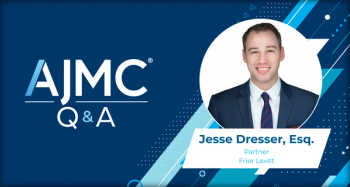
On World Cancer Day, NCCN Patient Advocates Share What Makes Their Journeys Unique
Key Takeaways
- World Cancer Day promotes awareness and patient-centered cancer care, marking the 25th anniversary of the Charter of Paris Against Cancer.
- The 'United by Unique' campaign highlights the individuality of cancer journeys, uniting patients, caregivers, and healthcare teams.
World Cancer Day also marks the start of the ‘United by Unique’ campaign, which seeks to highlight how each person’s journey with cancer is unique, even though the patients, caregivers, and health care teams who are touched by cancer are united by shared goals.
February 4, 2025, is World Cancer Day, a global initiative to raise awareness and boost knowledge of cancer risk, with the goal of encouraging more people to take steps to prevent cancer, take part in screenings, or promote “patient-centered” treatments.
Organized by the Union of International Cancer Control (UICC), World Cancer Day is celebrated each year on February 4, the anniversary of the
This year, World Cancer Day also marks the start of the ‘United by Unique’ campaign, which seeks to highlight how each person’s journey with cancer is unique, even though the patients, caregivers, and health care teams who are touched by cancer are united by shared goals. In the United States, the National Comprehensive Cancer Network (NCCN), which develops practice standards followed by clinicians across the globe,
Now in its 30th year, NCCN publishes the NCCN Clinical Practice Guidelines in Oncology (NCCN Guidelines®), which are created by panels of experts in more than 60 different tumor types. These evidence-based, consensus-driven recommendations drive prevention, treatment, and supportive care and serve as the gold standard for payer reimbursement in the United States.
The multidisciplinary panels meet at least once each year to update guidelines in each type of cancer or supportive care area; they include patient advocates, who serve both NCCN and their fellow patients by ensuring that the voice of the person with cancer is represented in the discussion. For World Cancer Day,
Ruth Fein Revell: “Misunderstood” Living With Chronic Cancer
Revell, who is a journalist, author, and member of the guidelines panel for Myeloproliferative Neoplasms (MPN) was first diagnosed at age 38 and has lived with this chronic, evolving cancer for more than 30 years. That’s actually longer than MPNs were even formally classified as cancers, which did not occur until 2008; until then, this group of blood cancers were known as myeloproliferative diseases.
Having a chronic cancer left Revel feeling “invisible and misunderstood,” she explained in the
Recently, Revell wrote a book, “The Big C2: Stories From the Chronic Side of Cancer.” The good news, she said, is that the science has advanced significantly in the past 3 decades. Those advances can make treatment more successful, but also complex; patients with MPNs now have more treatment choices, and more combinations with the standard of care, ruxolitinib, are in clinical trials.
Laura Porter, MD: Colonoscopy Delayed While Cancer Advanced
A member of the NCCN Guidelines Panel for Colorectal Cancer Screening, Porter was diagnosed with metastatic colon cancer at age 43. Her young age was a barrier to being screened, along with her lack of family history with the disease. When she was finally diagnosed, Porter’s tumor was the size of a grapefruit;
Porter has gone through recurrences of her cancer, but for the last 18 years she has been disease-free. Her focus has been on advocacy. “Anybody who's a cancer survivor will tell you, life changes completely. Your new normal is definitely not normal,” she told NCCN
Besides the stress of living with cancer, Porter had the added burden of living in the United States during the years when she was unable to get married. “We had to make sure that all the special paperwork was filled out so if something happened to me, mypartner at the time, who is nowmy wife, would be the one that was notified. That was incredibly stressful on top of everything else.”
Resources for Shared Decision Making
“At NCCN, we know that the best cancer care is patient-centered care that recognizes everyone’s unique perspective,” said Crystal S. Denlinger, MD, the CEO of NCCN. “We are proud to champion informed, shared decision-making on World Cancer Day and every day.”
Denlinger noted that NCCN also published its
Newsletter
Stay ahead of policy, cost, and value—subscribe to AJMC for expert insights at the intersection of clinical care and health economics.








